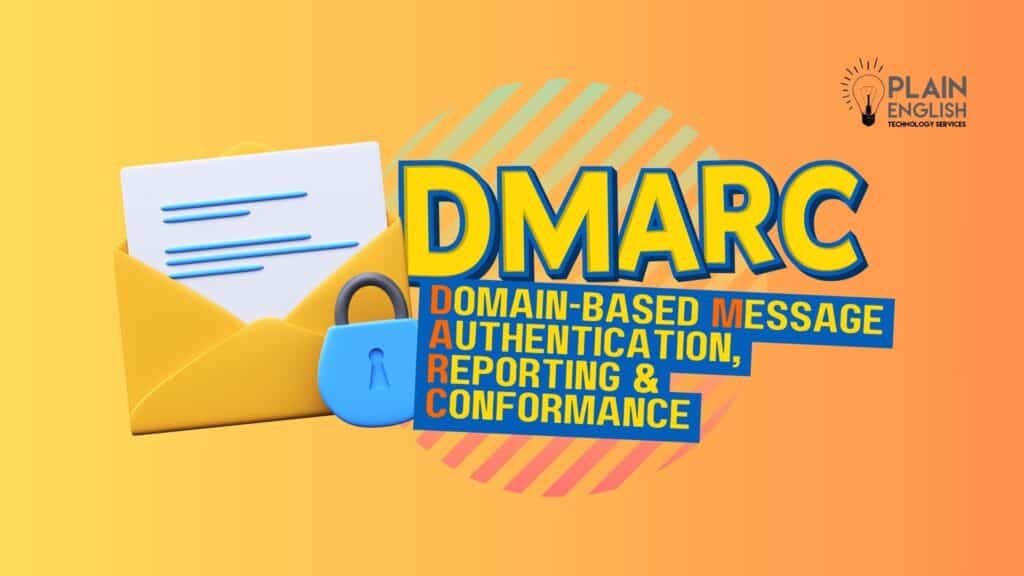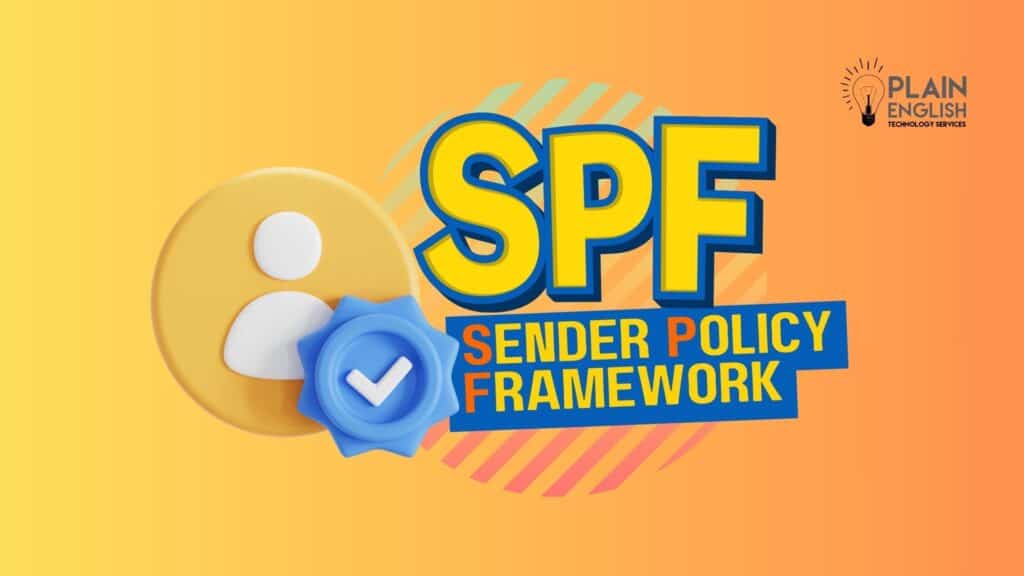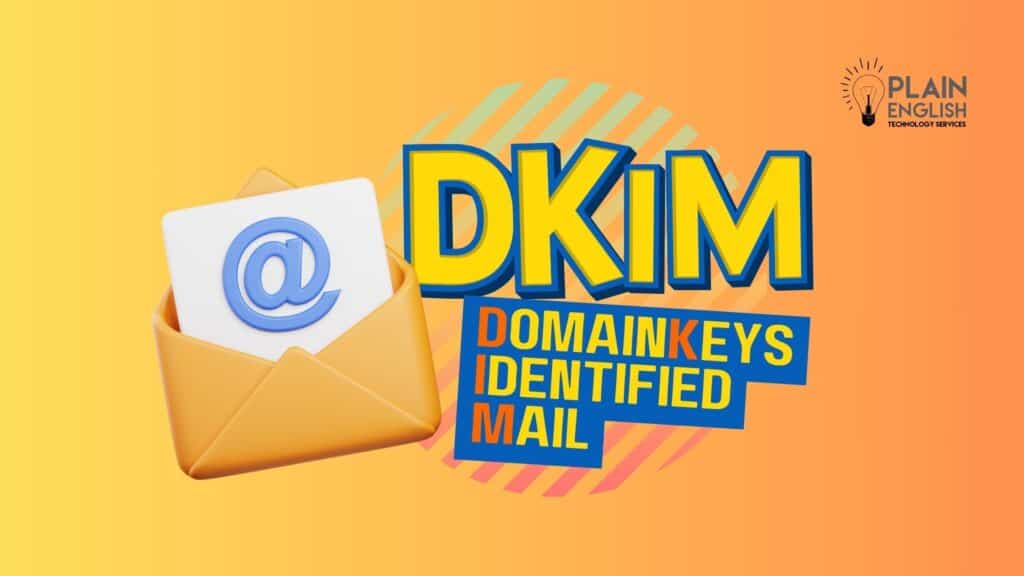Did you know that Email was originally developed in the 1960s and made public in the 1980s? It was actually designed for communication, not protection. Over time, as cyber threats evolved, we’ve had to bolt on security measures to make sure email can keep up with today’s risks.
If you want to keep your business email secure from spam, spoofing, and phishing, there are three essential layers of protection every organization should have in place:

DMARC (Domain-based Message Authentication, Reporting & Conformance)
What it does: The first layer of email security, DMARC brings SPF and DKIM together and gives domain owners control over what happens when a message fails those checks. It also provides reporting tools to see who’s trying to spoof your domain.
Why it matters: DMARC stops impersonators in their tracks and helps protect your brand reputation in the inbox.

SPF (Sender Policy Framework)
What it does: The second layer of email security, SPF checks whether the email is coming from an authorized mail server on behalf of your domain.
Why it matters: Without SPF, bad actors can spoof your domain—sending fake messages that look like they’re from you.

DKIM (DomainKeys Identified Mail)
What it does: Last but not the least, the third layer of email security, DKIM adds a cryptographic signature to every outgoing email. acting as a “tamper-proof seal” that ensures the message remains unaltered during transit.
Why does it matter? Even if someone intercepts or modifies a message on the way, DKIM verifies whether the message is authentic and unchanged.
How Secure is Your Email Setup?
Many businesses assume their email is protected, but if they fail to configure SPF, DKIM, and DMARC correctly, they expose their domain (and customers) to risks.
Get Peace of Mind with Plain English Technology Services
At Plain English Technology Services, the premier IT company in Washington and Oregon, we make email security simple. We’ll review your existing setup, configure the proper records, and explain it all in—you guessed it—plain English.
Schedule a consultation today and let’s make sure your email system is working for you—not for the scammers.